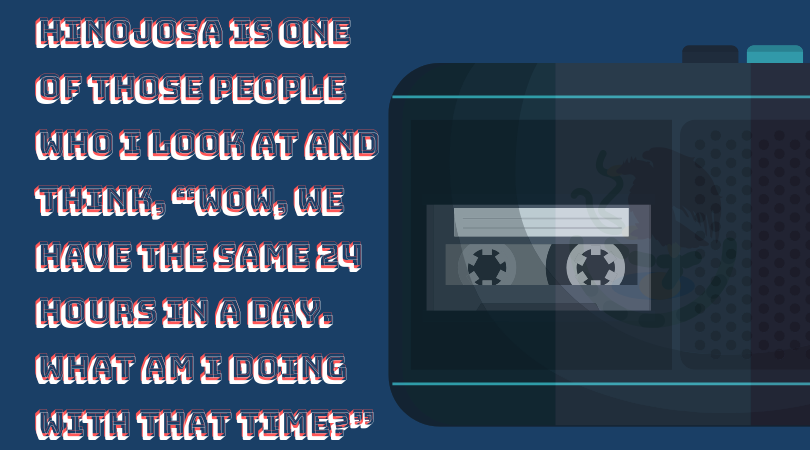Maria Hinojosa: Seeing Role Models in the Flesh
Words by Radhamely De Leon
Illustration by Katie Herchenroeder
There is something truly unreal about seeing people you admire in person. In looking at Maria Hinojosa as she reflected on her time as a journalist, it became clear that this did not come easily to her. Her 25-year career was forged through reporting on the hard-to-swallow truths of sexual assault, human trafficking, poverty, immigration, and more. She even started her own non-profit media company, Futuro Media, as a way to take control of the narrative surrounding Latinx culture.
Hinojosa is one of those people whoI look at and think, “Wow, we have the same 24 hours in a day. What am I doing with that time?”
The talk proved to be refreshingand motivating. Although it was advertised to be a chance to learn more aboutthe border crisis, her mix of personal anecdotes and truths brought the ongoingimmigration crisis into a new light. Her refreshingly honest manner took theaudience on a ride through personal and national politics as we all tried tounderstand what was going on in the world around us. As soon as she got to thepodium, an understandably intimidating symbol of academia, she referred toherself as a “Chaparral,” or Spanish slang for short, and launched into theevening.

“I loved her talk, I’m also Mexicanso when she made anecdotes about eating chilaquiles and men who wait for workearly in the morning I felt that she was talking about our community in a waythat is not commonly represented in media. She showcased immigrants as normalpeople who do everyday things. Not just criminals and not just victims,” saysDiana Bacat, a 20-year-old English student at City College.
Having to report on topics that areso close to home is becoming increasingly difficult as so much politicalcontroversy now surrounds the human identity. Hinojosa touched on the risingquestion of “How can journalists cover immigration today without seeming like ‘ActivistJournalists’ with an agenda to push?” In conjunction with her role as ajournalist, it is clear that her personal identity is integral to her success. TheLatinx experience, especially for immigrants, is closely entwined with what ishappening in today’s political climate.
The talk had reached a particularlytender moment when Hinojosa recalled watching Dr. Blasey Ford’s testimonyagainst then Supreme Court Justice nominee Brett Kavanaugh and feltparticularly touched as a survivor of sexual assault. Further, the ongoingimmigration crisis continuously puts her own identity of being a Mexicanimmigrant at the forefront, as well. Hinojosa, who certainly comes from a somewhatprivileged background as well, is not the only one whose trauma and identityclashes with the headlines daily.
Being so open can make such a hugedifference for your audience by humanizing these types of experiences. Realpeople are going through similar struggles every day, especially on a campussuch as City College, and talking about it boldly matters. The biggest takeawayfrom Maria Hinojosa’s visit to City College, for me at least, was to takecontrol of your identity and your narrative. You are your biggest advocate.





